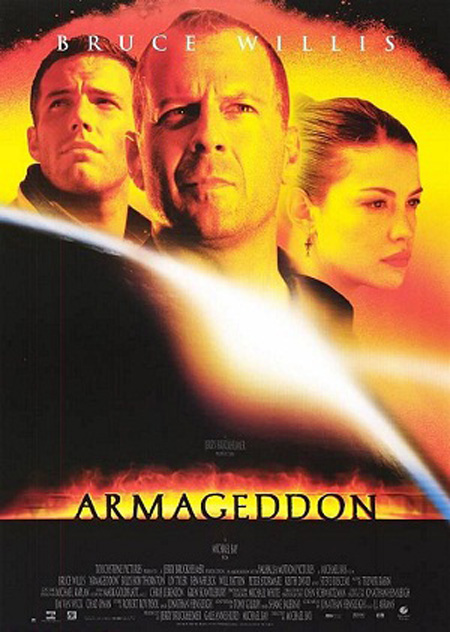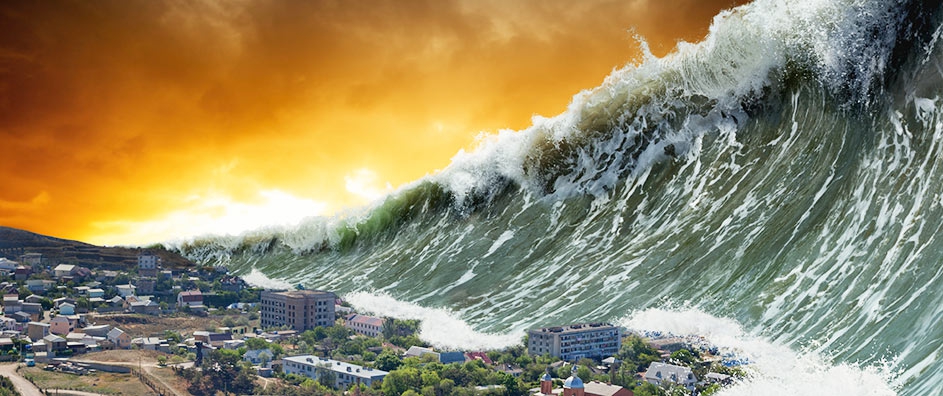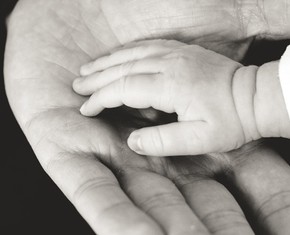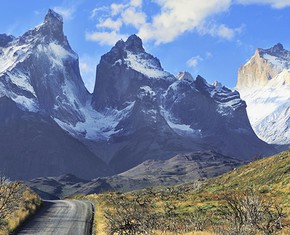The views expressed in our content reflect individual perspectives and do not represent the authoritative views of the Baha'i Faith.
Haste thou to life before death cometh; haste thou to the spring season before autumn draweth in; and before illness striketh, haste thou to healing — that thou mayest become a physician of the spirit who, with the breaths of the Holy Spirit, healeth all manner of sickness in this famed and glorious age. – Abdu’l-Baha, Selections from the Writings of Abdu’l-Baha, p. 56.
I’ve spent a bunch of time contemplating my own eventual death lately, which has led me to an odd yearning—I have developed a strange desire to watch disaster movies.
You’ve seen those films where the whole world ends, right?
Catastrophe, cataclysm, apocalypse and total annihilation seem to crop up as major themes in so many movies, books and TV shows these days. Whether from a nuclear holocaust, an environmental disaster, a new disease, an attack by gruesome monsters, an alien invasion, an asteroid HEADED STRAIGHT FOR THE EARTH! or a dystopian future where complete destruction reigns, filmmakers endlessly repeat this tried-and-true trope. These kinds of films have proven global box-office appeal—audiences love them.
I wondered why I felt compelled to see these films, so I did a little research. Psychologists and religious scholars have asked why we seem to love the disaster genre so much, and the answer is fascinating. University of Colorado professor of Religious Studies Ira Chernus, in his book Dr. Strangegod—On the Symbolic Meaning of Nuclear Weapons, says that dystopian and disaster films should:
…be seen as being primarily about survival. The apocalyptic myth, which seems to exist in one form or another in all cultures, is doing what all classic myth does. It is trying to hold in tension two opposite possibilities and visualize what might emerge. It is a fragile posture of hope, that stands firmly in the swirl of apocalyptic omens predicting bad endings and dreams of the future.
 When you think about it, every disaster movie really does focus on the idea of survival. After all, if disaster movies ended with total, complete annihilation for every living thing, they’d be pretty boring and predictable, not to mention altogether too dark to sit through.
When you think about it, every disaster movie really does focus on the idea of survival. After all, if disaster movies ended with total, complete annihilation for every living thing, they’d be pretty boring and predictable, not to mention altogether too dark to sit through.
From a spiritual perspective, though, I’d like to suggest an alternative way to look at disaster movies: they’re about survival—but they’re all about surviving our own individual death. Now there’s a universal theme, guaranteed to appeal to just about everyone. We can all relate. In our relatively non-religious era, billions of people yearn for some reassurance that death doesn’t mean oblivion.
So that’s the underlying message of every disaster movie ever made—that you, personally, can survive your own disastrous, unavoidable and fatal end, if you can purify your heart and awaken your soul.
Think about it. The hero of almost all disaster films narrowly escapes the fate of almost everyone else. Our noble hero goes through a series of difficult, insurmountable trials and tribulations. The minor characters in the film die. Usually, those minor characters have some kind of personality flaw—greed or egotism or a lack of concern for others—and that flaw leads them to an early demise. Then the hero, brave and selfless, proves his or her mettle, passes through the fire of great tests, and survives.
Pretty simple symbolism—the hero represents you, the viewer, and the disaster stands for the hero’s fear of the end of physical existence itself. The hero has to pass the spiritual tests of life, conquer his or her lower nature by shedding negative characteristics, go through trials and emerge as a more spiritually aware and mature human being—all in order to bypass death and enter into a new reality.
I can’t take credit for this idea. Joseph Campbell first pointed it all out in his groundbreaking 1949 book The Hero with a Thousand Faces. In it, he traced the myths of the heroic journey through a number of the world’s cultures, tribes and societies, and found that every one of those hero myths had several basic elements in common. They all described the struggle of the individual against inimical forces; they all featured a descent into an unknown landscape which stood for the hero’s inner reality; they all battled monsters and dark forces that symbolized their lower natures; and they all emerged victorious and purified, which allowed them to bring a gift of new insight back to their fellow human beings.
These myths, so common across all cultures, tell us something profound about ourselves. They each speak to our deep inner desire to continue our lives past our physical deaths. Everyone wants to keep living, to go on, to survive what we perceive as the impending disaster of our own individual extinction. At their core, disaster films and the hero myths reassure us that we can go beyond our mortality.
We can only do that, the Baha’i teachings say, by transcending the physical and awakening the spiritual:
But oh! how strange and pitiful! Behold, all the people are imprisoned within the tomb of self, and lie buried beneath the nethermost depths of worldly desire! Wert thou to attain to but a dewdrop of the crystal waters of divine knowledge, thou wouldst readily realize that true life is not the life of the flesh but the life of the spirit. For the life of the flesh is common to both men and animals, whereas the life of the spirit is possessed only by the pure in heart who have quaffed from the ocean of faith and partaken of the fruit of certitude. This life knoweth no death, and this existence is crowned by immortality. Even as it hath been said: “He who is a true believer liveth both in this world and in the world to come.” If by “life” be meant this earthly life, it is evident that death must needs overtake it. – Baha’u’llah, The Book of Certitude, p. 120.
Awakening your soul, Baha’u’llah writes, comes as the result of a true spiritual search:
Only when the lamp of search, of earnest striving, of longing desire, of passionate devotion, of fervid love, of rapture, and ecstasy, is kindled within the seeker’s heart, and the breeze of His loving-kindness is wafted upon his soul, will the darkness of error be dispelled, the mists of doubts and misgivings be dissipated, and the lights of knowledge and certitude envelop his being. At that hour will the mystic Herald, bearing the joyful tidings of the Spirit, shine forth from the City of God resplendent as the morn, and, through the trumpet-blast of knowledge, will awaken the heart, the soul, and the spirit from the slumber of negligence. Then will the manifold favors and outpouring grace of the holy and everlasting Spirit confer such new life upon the seeker that he will find himself endowed with a new eye, a new ear, a new heart, and a new mind. He will contemplate the manifest signs of the universe, and will penetrate the hidden mysteries of the soul. – The Book of Certitude, p. 196.
You May Also Like
Comments

















Your articles are beautiful as ever. Life is death, live it away @ http://www.abcdefg.co/everything.html .
Love,
Sridattadev.